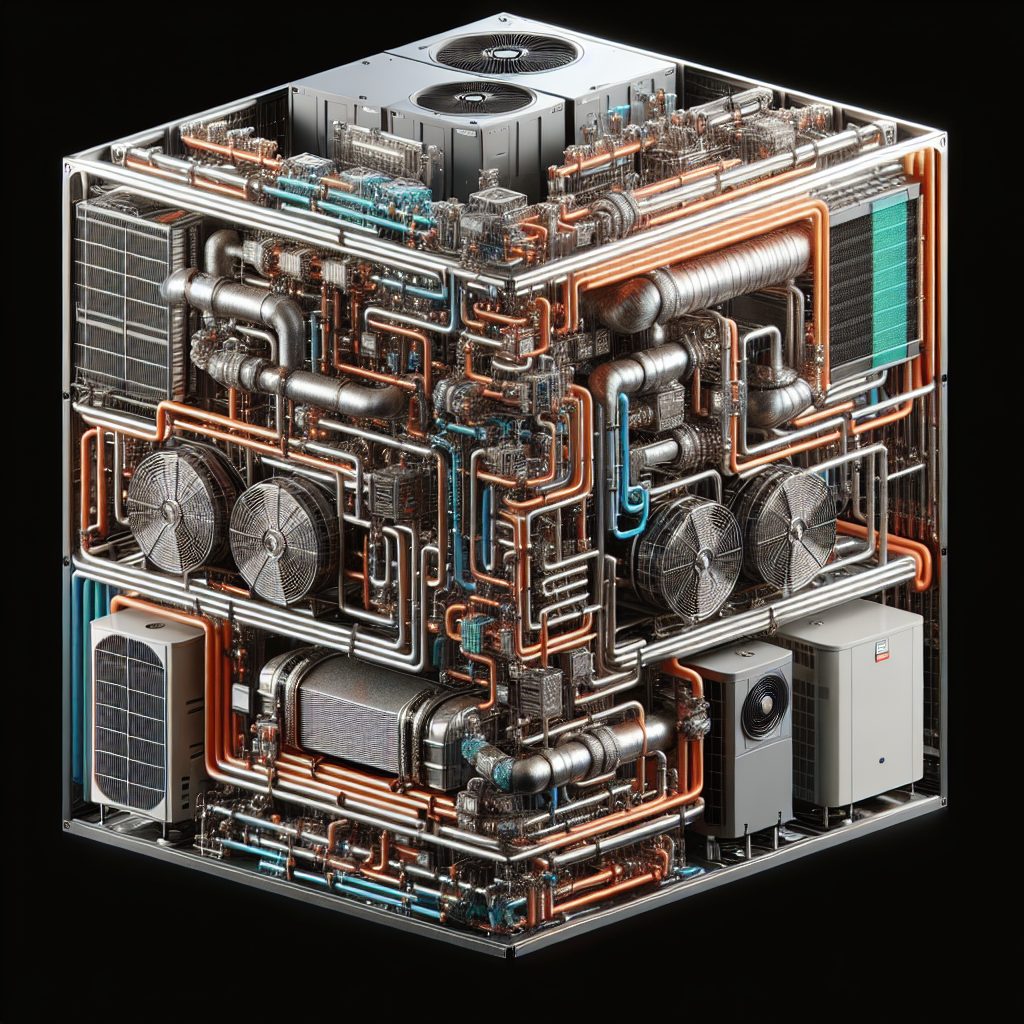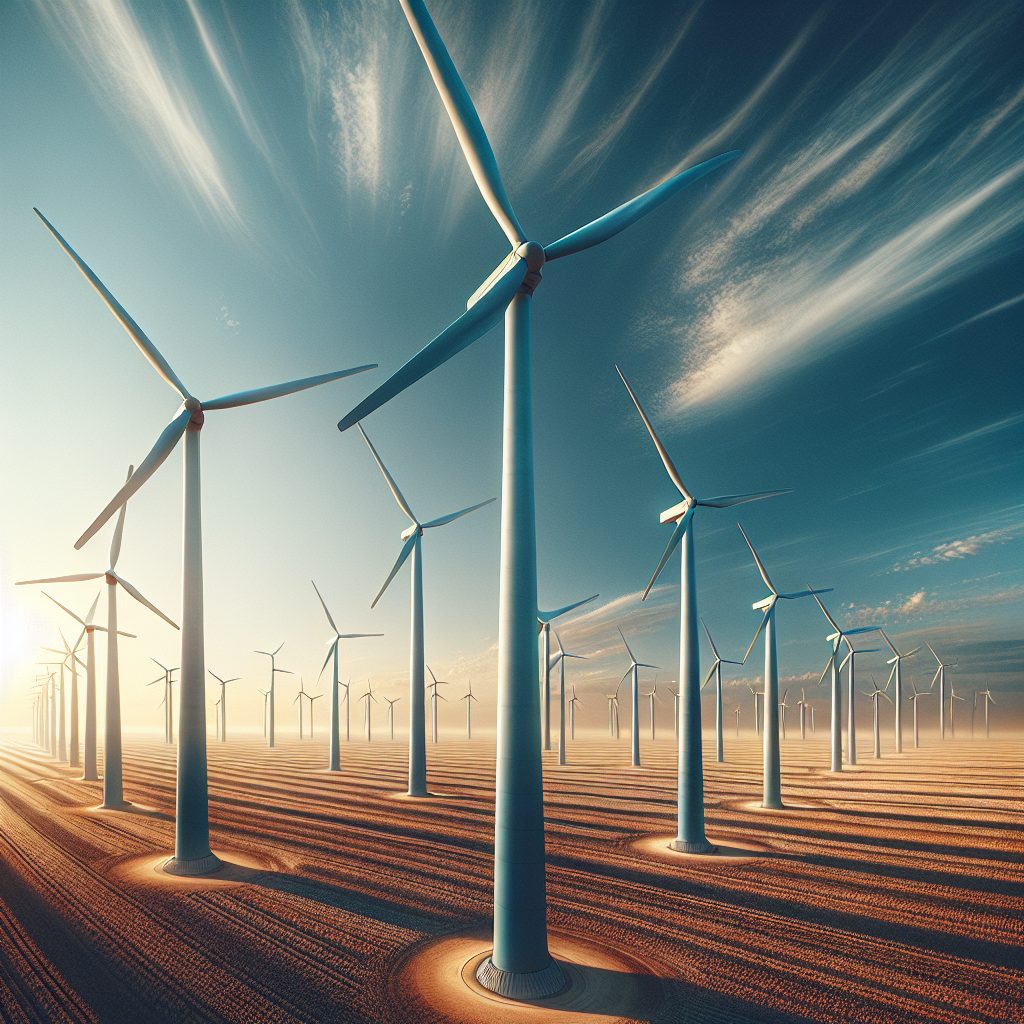
High-efficiency HVAC systems are the latest in energy-efficient-air-conditioning/” title=”Energy-Efficient Air Conditioning “>air conditioning and heating systems, delivering powerful performance with minimal energy use. These systems use advanced technology to cool and heat your home or business more efficiently than traditional systems, helping you save money and reduce your energy consumption. High-efficiency HVAC systems are not only cost-effective, but they also produce clean, comfortable air without compromising air quality. These systems allow you to filter out allergies, dust, pollen, and other particles, making it easier for you and your family to breathe better. Additionally, high-efficiency HVAC systems keep your home and businesses cooler in summer months and help to reduce seasonal energy bills.
The key benefit of a high-efficiency HVAC system is its improved performance and energy-efficiency. Many systems come with advanced features, such as variable speed fans and smart controls, that continuously monitor your system and keep it running at peak efficiency. These features additionally help ensure that you get the most from your system’s performance and that it is running as efficiently as possible. Furthermore, they allow you to control your system from any compatible smartphone, tablet, or computer, providing you with unparalleled convenience. With all of these great features, high-efficiency HVAC systems provide excellent comfort and efficiency.
Key Takeaways
1. High efficiency HVAC systems improve the air quality in the home, reduce cost from energy bills, and create a comfortable environment.
2. ENERGY STAR divides residential HVAC products into different tiers based on their efficiency ratings. These tiers are: basic, better, and best.
3. Annual fuel utilization efficiency or AFUE measures the efficiency of heat pumps and furnaces, with 85% being the minimum rating requirement.
4. SEER ratings measure the efficiency of air conditioners and heat pumps, and a rating of 13 or higher is recommended for efficient operation.
5. Refrigerant leakage is one of the major causes of inefficient air conditioning, so replacing old models with newer, more efficient systems can increase your savings and create a comfortable indoor environment.
What are the Benefits of High-Efficiency HVAC Systems?
High-efficiency HVAC systems offer a range of advantages for homeowners and business owners. They often provide greater energy savings than their standard HVAC counterparts, meaning lower utility bills on average. Furthermore, they typically require less maintenance, resulting in lower repair costs over time. Additionally, high-efficiency HVAC systems tend to run more quietly than their low-efficiency HVAC counterparts, allowing for a much more peaceful environment.
What Factors Affect the Efficiency of an HVAC System?
There are a variety of factors that can affect the efficiency of an HVAC system. Some of the most important elements include size, insulation, ducts, and heating or cooling equipment. Size, or the square footage of the home or building, is of utmost importance as the air conditioning and heating systems must be appropriately sized for the space they will be operating in. Inadequately sized units can run inefficiently and fail to adequately compensate for the temperature differences within a space. Insulation is another key factor in the efficiency of an HVAC system, as it helps to prevent air leakage from and into the home or building, resulting in greater energy savings. Ducts should also be properly sealed, as well as insulated, to maximize energy savings. Finally, the type of heating or cooling equipment, such as a furnace or air conditioner, can also play an important role in determining the efficiency of the overall system.
How Can Homeowners Improve Efficiency of their HVAC Systems?
There are a number of ways homeowners can improve the efficiency of their HVAC systems. One of the most important steps is performing regular maintenance. It’s recommended to have the system’s filters replaced or cleaned every month in order to keep them free of debris, such as pet fur, dust, and pollen, which can block airflow. Additionally, making sure that all ducts, vents, and registers are kept clean and clear can help the system to run more efficiently. Additionally, homeowners should ensure that all doors and windows are closed when the HVAC system is in operation in order to prevent air leakage. Finally, if the HVAC system is more than 10-15 years old, it may be time to consider replacing it with a newer, more efficient model.
5 Tips for Maximizing the Efficiency of Your HVAC System
1. Clean or replace filters regularly.
2. Maintain clean ducts and registers.
3. Make sure all doors and windows are closed when the HVAC system is running.
4. Invest in regular maintenance for both preventative and diagnostic purposes.
5. Consider upgrading to a newer, more efficient system if the current HVAC system is more than 10-15 years old.
What Is a High-Efficiency HVAC System?
A high-efficiency HVAC system is the type of system that is designed to be more energy-efficient than standard systems. These types of systems are typically constructed from materials that reduce energy loss and increase overall efficiency. This allows them to run more efficiently, saving energy and ultimately costing the user less in energy bills over the lifetime of the system.
What Are the Benefits of a High-Efficiency HVAC System?
The primary benefit of a high-efficiency HVAC system is that it saves money in energy bills due to its energy-efficient design. Additionally, this type of system reduces strain on the environment due to its decreased energy consumption, and it may come with longer warranties than standard systems, protecting you further from major repair costs.
Are High-Efficiency HVAC Systems Expensive?
High-efficiency HVAC systems can be more expensive than standard systems when they are initially installed, but this cost difference is typically made up over time due to the energy savings that they provide. Additionally, high-efficiency models are often available with tax credits or other incentives, further reducing the initial costs.
How Much Money Can I Expect To Save With a High-Efficiency HVAC System?
The amount of money saved by using a high-efficiency HVAC system will vary depending on your specific geographic location, as energy costs can vary drastically from one area to another. To get an estimation of the amount you would save in your area, contact a qualified HVAC technician to get an estimate for your specific type of system.
Can I Install a High-Efficiency HVAC System Myself?
High-Efficiency HVAC systems are complex systems and require a certain level of technical expertise to install properly. If you are not familiar with the installation steps or with local building codes, it is best to contact a qualified HVAC technician to ensure that the system is installed correctly.
What Types of High-Efficiency HVAC Systems Are Available?
High-efficiency HVAC systems come in several forms, including central air conditioners, furnaces, and heat pumps. Each type of system comes in multiple sizes and variations, so it is important to choose the type and size that best fits your specific needs.
What Should I Look for When Choosing a High-Efficiency HVAC System?
When choosing a high-efficiency HVAC system, it is important to consider the type of system that best fits your needs (such as central air conditioner, heat pump, or furnace), the efficiency rating of the system, and the availability of any local incentives, such as tax credits or rebates.
Do High-Efficiency HVAC Systems Require Maintenance?
All HVAC systems require regular maintenance to ensure that they are running properly and efficiently. However, the maintenance requirements for high-efficiency HVAC systems may be different than those of standard systems. Check the manufacturer’s manual for information on the maintenance schedule and recommended actions.
Do High-Efficiency HVAC Systems Produce More Heat?
High-efficiency HVAC systems can produce more heat than standard systems because they operate more efficiently, allowing for optimal use of the heat generated and the reduction of energy wastage. However, high-efficiency systems do not necessarily produce more heat than standard systems of the same size.
Final Thought
High-efficiency HVAC systems have the potential to provide major financial and environmental benefits in the long run. In addition to the energy savings and tax incentives, many high-efficiency HVAC systems come with extended warranties or other benefits that can make them a great investment. When upgrading your system, take into account the different types of high-efficiency systems available, the potential for incentives, and the overall cost of the investment.
High-efficiency HVAC systems come in a variety of shapes and sizes, and there are many factors to consider when deciding which type of system is right for you. Consider your budget, the size of your home, and your overall energy needs, research your options, and talk to a professional to make sure to make the best choice for your needs.



